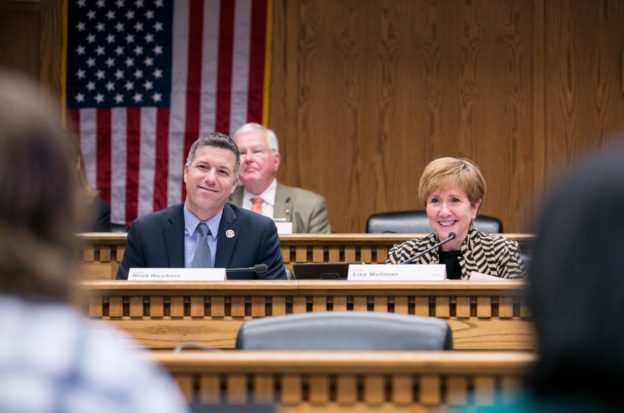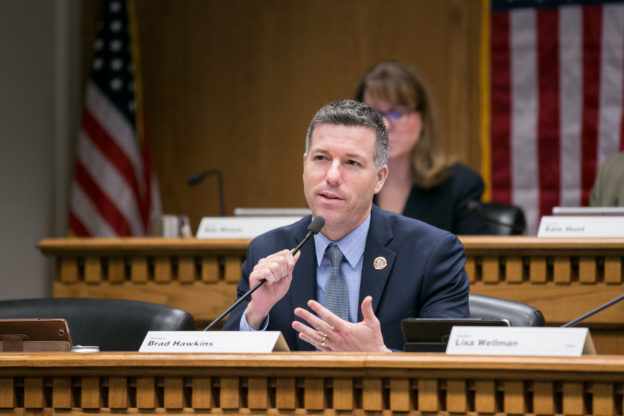A bill prime-sponsored by 12th District Sen. Brad Hawkins aimed at learning recovery due to impacts of the COVID pandemic, including a pilot project to help districts voluntarily reform their school calendars, was approved today by the Senate Ways and Means Committee.
As amended and passed by the committee, Hawkins’ bipartisan legislation, Senate Bill 5147, would help assist districts with “learning stabilization, recovery, and acceleration” in response to struggling academics resulting from less than ideal remote learning and significantly reduced in-person instruction.
Hawkins, the ranking Republican member on the Senate’s Early Learning and K-12 Education Committee, has partnered on the bill with 41st District Sen. Lisa Wellman, who chairs the committee and is the lead co-sponsor of Senate Bill 5147. Prior to the committee’s passage of the bill, Hawkins and Wellman worked together on a sweeping amendment to the measure that would:
- Fund three additional instructional days to all districts statewide in the 2021-22 school year.
- Direct the Office of Superintendent of Public Instruction to create and administer a grant program to assist school districts in facilitating a weeklong “reengagement” program prior to the start of the 2021-22 school year for students to reconnect with peers and teachers through learning, physical activity, and social interaction.
- Direct OSPI to administer a grant program to fund up to five days of additional education opportunities in preparation for the 2021-22 school year for lower-income districts.
- Advance a “balanced school calendar” program to allow up to 20 school districts to explore using their 180 state-funded school days differently to implement an 11-month school calendar beginning in the 2022-23 school year.
“This bill took a significant step forward by being approved by the Ways and Means Committee today,” said Hawkins. “The substitute version that Senator Wellman and I developed broadens the bill to help school districts address learning stabilization and recovery, in both the short term and the longer term.”
Hawkins, who served for 10 years on the Eastmont School Board and North Central Educational Service District Board before being elected to the Legislature, says the state should be supporting districts to address learning recovery to try to catch students up to their prepandemic academic learning trajectory.
“Now is the time – as we prepare to move past this pandemic – to assist our school districts and their students with their growing academic and social challenges resulting from loss of instruction or less than ideal remote learning. We also need to think big about reforming the system and to get serious about exploring better opportunities for student learning in the years ahead. The ‘balanced calendar’ pilot remains as a section of the bill to help incentivize districts to change,” said Hawkins.
Senate Bill 5147 now goes to the Senate Rules Committee for further consideration.
To review the committee-approved amendments, click here and here.
To review a summary of the bill, click here.
Photo caption: Sen. Brad Hawkins (left) and Sen. Lisa Wellman worked together on changes to Senate Bill 5147 before it was passed by the Senate Ways and Means Committee.













